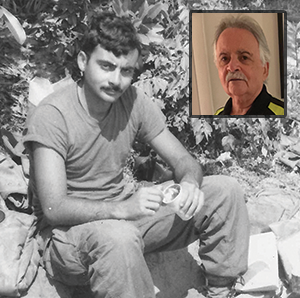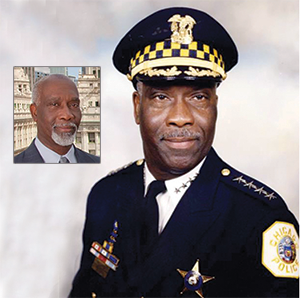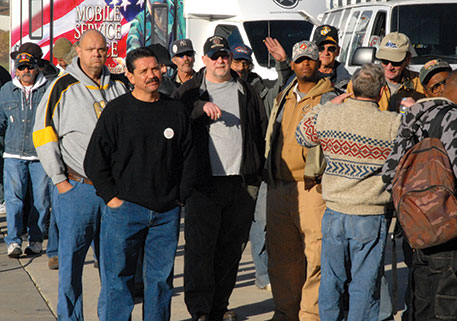
Gary Salpini remembers sitting in an auditorium at Fort Carson, Colorado. While out-processing from the Army after his combat tour in Vietnam, he was told that, as a draftee, all he was entitled to from the Department of Veterans Affairs was a free burial site at one of its cemeteries.
Without access to any other information, he took what he was told at face value. It wasn’t until decades later, in the early 2000s, that he finally learned the truth and got help accessing his VA benefits through DAV.
Not wanting another veteran to have a similar experience, he is now an active member of Chapter 10 in Dumfries, Virginia, often raising his hand to volunteer for outreach events and other service projects.
This volunteer work allows him and his fellow chapter members to meet and talk with veterans who may not understand the benefits they’ve earned from their service.
“I’m trying to do what little bit I can to take care of these current generations,” Salpini said. “That’s my way of getting even.”
Salpini is a regular, committed presence in Chapter 10, filling roles both as a community spokesperson and behind the scenes helping with event and meeting logistics.
“His thing is giving back to the community through the chapter,” said Chapter 10 Commander Shamala Capizzi. “And he’ll tell you, too, that how he provides his service is through action.”
Capizzi, a Marine veteran and DAV benefits advocate, grew up knowing the concept of service through action. Her father, a retired Marine, instilled volunteering as an important part of life. It’s a tradition that she continues with her family and within her chapter.
She believes volunteering should be a priority for all DAV chapter leaders to nurture, because it reminds communities that our nation’s ill and injured veterans still need support.
Her chapter has found success in bringing community service initiatives into reality through a platform of being receptive to new ideas, collaborating among members and then taking action as a team.
“If you see something lacking within the veteran community, then engage in it and see where you can help,” Capizzi said. “That’s where it all really starts.”

That is exactly what DAV member Terry Hillard from Chapter 42 in Addison, Illinois, did. He has made it his life’s work to educate first responders who are veterans about their VA benefits after learning how few of them file.
He was influenced by his own experience. After serving in the Marine Corps during the Vietnam War, he joined the Chicago Police Department. He rose through its ranks, retiring as its superintendent in 2003.
But like many other Vietnam-era veterans on the force, he never went to the VA.
“We went 40 years without filing any type of claim whatsoever because we felt that if we filed some type of claim with the VA and the department found out about it, we’d be terminated,” he said.
Even after nearly dying while on the force from cancer, which he assumed at the time was related to Agent Orange exposure, he thought filing for benefits would take them away from someone who he felt needed them more.
It wasn’t until about five years ago that close friend, fellow veteran and retired police officer Thomas Raines finally convinced Hillard to go to a DAV meeting and learn about filing. Hillard said he was skeptical, thinking it would be like a bar, similar to other veterans organization meetings he had attended in the past.
“I went out there and I was floored,” he said.
Instead of what he expected, he watched DAV benefits advocates Carlo Melone and John Rodriguez individually talk to and assist every veteran who attended that night, speaking with knowledge and a genuine interest to help.
That meeting changed Hillard’s mind about VA benefits. It also inspired him to volunteer, alongside several other veterans who served in the Chicago Police and Fire departments, to host frequent information seminars for veterans in first responder occupations, designed to help them understand the importance of DAV membership, their VA benefits and the claims process.
Since they began in Spring 2022, these events have drawn hundreds of Chicago-area veterans.
Hillard credits Melone, Rodriguez and Raines, as well as fellow DAV members and retired Chicago police officers Hiram Grau and Joseph Gandurski, as being instrumental in the success of these seminars.
Hillard plans to expand their outreach beyond Chicago to surrounding counties and the state.
“We’ve got something special going on here,” Hillard said. “This is what I want to do for the time that I’ve got left on this earth.”





